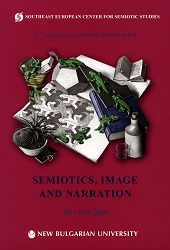
We kindly inform you that, as long as the subject affiliation of our 300.000+ articles is in progress, you might get unsufficient or no results on your third level or second level search. In this case, please broaden your search criteria.

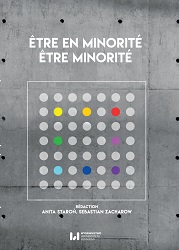
The Literature of Jewish writers from North Africa in postcolonial France is a particularly sui¬table example for the analysis of what being in a minority and / or be a minority means. Indeed, the status of the Jews from Maghreb can be viewed in a twofold manner – as a minority from the point of view of legal and customary status and from the demographic point of view. The “minority” or “minor” refers first to the minority position of producers from this population in the global social space. It can give their literature a political-cultural dimension, as explained in the definition given to “minor literature” by Gilles Deleuze and Félix Guattari. The other aspect of the “minor” or “minority” character – close to the definition of Jacques Dubois – ori¬ginates from the fact that this population of authors consists not only of recognized writers in the literary field but also marginal authors. The “minor” term, in this second case, refers neither to the subversive capacity of the culturally dominated literary production nor to the use of a majority language by a minority. The objective is therefore to verify the relevance of the use of this term referred to a literary production of a minority group inscribed in and in interaction with a national and dominant literature.The Literature of Jewish writers from North Africa in postcolonial France is a particularly suitable example for the analysis of what being in a minority and / or be a minority means. Indeed, the status of the Jews from Maghreb can be viewed in a twofold manner – as a minority from the point of view of legal and customary status and from the demographic point of view. The “minority” or “minor” refers first to the minority position of producers from this population in the global social space. It can give their literature a political-cultural dimension, as explained in the definition given to “minor literature” by Gilles Deleuze and Félix Guattari. The other aspect of the “minor” or “minority” character – close to the definition of Jacques Dubois – originates from the fact that this population of authors consists not only of recognized writers in the literary field but also marginal authors. The “minor” term, in this second case, refers neither to the subversive capacity of the culturally dominated literary production nor to the use of a majority language by a minority. The objective is therefore to verify the relevance of the use of this term referred to a literary production of a minority group inscribed in and in interaction with a national and dominant literature.
More...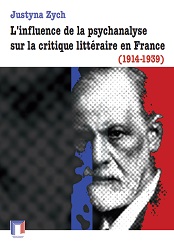
The monograph discusses the presence of psychoanalysis in the French literary criticism in the years 1914–1939. The analysis of critical works written in this period and relating to psychoanalysis reveals a clear evolution within this methodological orientation – from the first, often superficial attempts at transplanting Freud’s method directly to the discourse on literature, to mature critical proposals only referring to psychoanalysis or adapting it creatively to their own purposes.
More...
The book contains the analysis of the plastic and film works of Jean Cocteau as well as his writings related to the plastic arts. Cocteau was a many-sided artist: a writer, a poet, a painter, a drawer, a playwright, a theatre and film director, an art.. And literary critic. First chapter concerns art.. Criticism by Cocteau; second one is devoted to his poetry inspired by painting, sculpture, architecture and photography, as well as to the volumes illustrated by other renowned artists; in the third one Cocteau’s own visual works are presented.
More...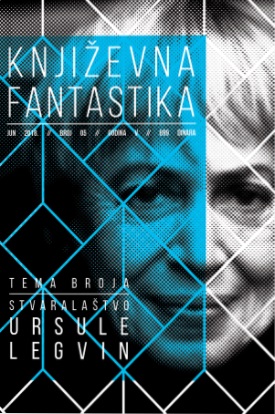
Ovaj esej ima za cilj, pored pružanja pregleda razvoja žanra fantastike u francuskoj (i frankofonoj) književnosti prevashodno 20. i 21. veka (uz isticanje ranijih ključnih predstavnika), i da postavi par načelnih pitanja1. Naime, izučavaocima fantastike ne promiče činjenica da je, u slučaju francuske moderne književnosti (od Prosvetiteljstva naovamo), za razliku od srednjovekovne i renesansne, spoljni podsticaj često bio potreban za slobodan i nesputan razvoj ovog žanra. Taj podsticaj ne samo da je bitan, nego je ključan, čak neminovan (ima li se u vidu nasleđe klasicizma i prosvećenosti, kasnijeg pozitivizma kao osnovnih odlika te literature – bar tako shvaćene u očima pisaca i kritike glavnog toka): reč je o činjenici koja se, takoreći ciklički, organski, ponavlja, i obuhvata čak tri stoleća književnosti; od uticaja gotskog romana na Kazota, Florijana, Sada (i druge, predrevolucionarne pisce), preko uticaja Hofmana na romantičare i Poa na Bodlera (te, njegovim posredstvom, na školu dekadenata s kraja devetnaestog veka (Fin de siècle), kao i na celokupnu belgijsku književnu scenu), sve do uticaja Lavkrafta na pisce kako žanrovske tako i književnosti glavnog toka od poratnog razdoblja 20. veka do danas. Pa ipak, teško se može reći da su, kada se velika pera francuske književnosti, u jednom širokom luku, nabroje, pisci kao što su Ritbef, Vijon, Rable, Dobinje, Molijer, Pero, Sad, Balzak, Nerval, Gotje, Bodler, Mopasan, Uisman, Roni Ene, Švob, Makorlan, Mandijarg, Eme, Grak, Turnije, da se zadržimo samo na klasicima (neretko i prevratnicima), teš- ko se za njih može reći da su nosioci usko shvaćenog „Racionalističkog duha“ – duha lišenog fantastičke svesti i potrebe za fantastikom. To je tim čudnije što je začetnik izučavanja fantastične priče, prvi sakupljač narodnih umotvorina tog vida, njihove redakcije i štampanja Šarl Pero, čiji je uticaj na Nemačku školu i Braću Grim (a preko njih na sve vodeće evropske književnike iz te oblasti, uključujući i Vuka Karadžića kod nas), neosporan. Pero je, u sporu Starih i Modernih, stao na stranu drugih upravo ističući fantastičnu priču (u osnovi, kod njega, bajku) kao delo modernih (kako po motivu, tako i po formi).
More...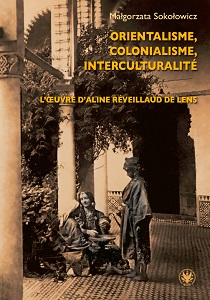
The book rediscovers the works of Aline Réveillaud de Lens (1881-1925), a French writer and painter who, since 1911, lived and worked in Tunisia and Morocco. In her works she portraited Maghreb and North African women. Three categories – orientalism, colonialism and interculturality – have been used to show the dynamics and uniqueness of her texts and paintings.
More...
The texts included in the volume describe travel as a literary phenomenon and as one of the basic human experiences. They present the analysis of works, often not known to a Polish reader. They also include texts from different periods, show distict perspectives and research methods as well as real and imaginary travels in time and space.
More...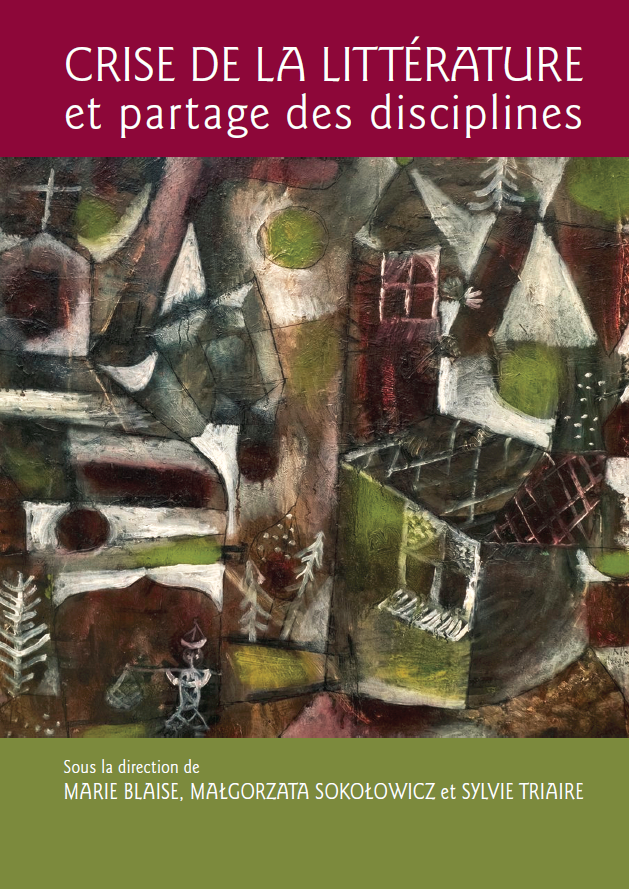
This volume, the result of a conference held in Warsaw in December 2019 as a part of a Franco-Polish research project on crises in literature, focuses on the relationships that the literature maintains with other fields of knowledge. These relationships, made up of sharing, collaboration or tension, were primarily theorized in the 19th century when the founding "disciplines" of our universities and research practices were established, but they had existed before. The texts presented in this volume allow us to verify this, from the Renaissance period to contemporary literature. They deal with historical circumstances and aesthetic changes in the course of which literature has forged links with religious or historical thought and discourse, accompanied the emergence of sociology or ethnography, and prepared new disciplines, such as demography. And it has always reinvested this new knowledge with a humanist and poetic dimension. Does the literature crisis lay in its capacity for reinvestment of what seems to escape from it and aiming at autonomy?
More...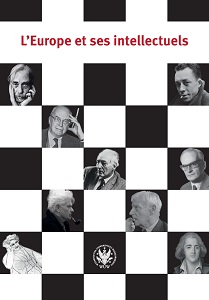
To celebrate the 200th anniversary of the foundation of the University of Warsaw, a research group from the Faculty of Modern Languages organized at the end of May and the beginning of June 2016 an international conference entitled “Europe and its Intellectuals”. The event was planned as part of the international programme “European Culture – European Identity” which is co-organized by the University of Warsaw with, among others: Universtité de la Sorbonne-Paris IV, Universität Bonn, Universita de Firenze, University of St Andrews, Université de Fribourg, Universita degli Studi Firenze, Universidad de Salamanca, Bulgarian Academy of Sciences, Université de Toulouse Le Mirail. The aim of the project was to show to what extent the idea of Europe was and is being shaped by the intellectual elites, and to emphasise the role played in this process by important institutions such as universities, libraries, museums, archives, publishing houses, and other centres of intellectual life. Such a framework allowed the participants to reflect in their presentations and discussions on more detailed issues: Panel I – “Engagement in the interest of Europe and its shape”, Panel II – “Europe in comparative perspective”, Panel III – “Remarkable individuals of the intellectual Europe”, Panel IV – “European incarnations”. At the invitation of the rector of the University of Warsaw, Marcin Pałys, the conference was attended by the rectors of the Paris-Sorbonne University and the University of Bonn. The papers of twenty-three scholars have been edited and published by the University of Warsaw Press in a volume of conference proceedings in printed and electronic versions.
More...
To celebrate the 200th anniversary of the foundation of the University of Warsaw, a research group from the Faculty of Modern Languages organized at the end of May and the beginning of June 2016 an international conference entitled “Europe and its Intellectuals”. The event was planned as part of the international programme “European Culture – European Identity” which is co-organized by the University of Warsaw with, among others: Universtité de la Sorbonne-Paris IV, Universität Bonn, Universita de Firenze, University of St Andrews, Université de Fribourg, Universita degli Studi Firenze, Universidad de Salamanca, Bulgarian Academy of Sciences, Université de Toulouse Le Mirail. The aim of the project was to show to what extent the idea of Europe was and is being shaped by the intellectual elites, and to emphasise the role played in this process by important institutions such as universities, libraries, museums, archives, publishing houses, and other centres of intellectual life. Such a framework allowed the participants to reflect in their presentations and discussions on more detailed issues: Panel I – “Engagement in the interest of Europe and its shape”, Panel II – “Europe in comparative perspective”, Panel III – “Remarkable individuals of the intellectual Europe”, Panel IV – “European incarnations”. At the invitation of the rector of the University of Warsaw, Marcin Pałys, the conference was attended by the rectors of the Paris-Sorbonne University and the University of Bonn. The papers of twenty-three scholars have been edited and published by the University of Warsaw Press in a volume of conference proceedings in printed and electronic versions.
More...
To celebrate the 200th anniversary of the foundation of the University of Warsaw, a research group from the Faculty of Modern Languages organized at the end of May and the beginning of June 2016 an international conference entitled “Europe and its Intellectuals”. The event was planned as part of the international programme “European Culture – European Identity” which is co-organized by the University of Warsaw with, among others: Universtité de la Sorbonne-Paris IV, Universität Bonn, Universita de Firenze, University of St Andrews, Université de Fribourg, Universita degli Studi Firenze, Universidad de Salamanca, Bulgarian Academy of Sciences, Université de Toulouse Le Mirail. The aim of the project was to show to what extent the idea of Europe was and is being shaped by the intellectual elites, and to emphasise the role played in this process by important institutions such as universities, libraries, museums, archives, publishing houses, and other centres of intellectual life. Such a framework allowed the participants to reflect in their presentations and discussions on more detailed issues: Panel I – “Engagement in the interest of Europe and its shape”, Panel II – “Europe in comparative perspective”, Panel III – “Remarkable individuals of the intellectual Europe”, Panel IV – “European incarnations”. At the invitation of the rector of the University of Warsaw, Marcin Pałys, the conference was attended by the rectors of the Paris-Sorbonne University and the University of Bonn. The papers of twenty-three scholars have been edited and published by the University of Warsaw Press in a volume of conference proceedings in printed and electronic versions.
More...
To celebrate the 200th anniversary of the foundation of the University of Warsaw, a research group from the Faculty of Modern Languages organized at the end of May and the beginning of June 2016 an international conference entitled “Europe and its Intellectuals”. The event was planned as part of the international programme “European Culture – European Identity” which is co-organized by the University of Warsaw with, among others: Universtité de la Sorbonne-Paris IV, Universität Bonn, Universita de Firenze, University of St Andrews, Université de Fribourg, Universita degli Studi Firenze, Universidad de Salamanca, Bulgarian Academy of Sciences, Université de Toulouse Le Mirail. The aim of the project was to show to what extent the idea of Europe was and is being shaped by the intellectual elites, and to emphasise the role played in this process by important institutions such as universities, libraries, museums, archives, publishing houses, and other centres of intellectual life. Such a framework allowed the participants to reflect in their presentations and discussions on more detailed issues: Panel I – “Engagement in the interest of Europe and its shape”, Panel II – “Europe in comparative perspective”, Panel III – “Remarkable individuals of the intellectual Europe”, Panel IV – “European incarnations”. At the invitation of the rector of the University of Warsaw, Marcin Pałys, the conference was attended by the rectors of the Paris-Sorbonne University and the University of Bonn. The papers of twenty-three scholars have been edited and published by the University of Warsaw Press in a volume of conference proceedings in printed and electronic versions.
More...
To celebrate the 200th anniversary of the foundation of the University of Warsaw, a research group from the Faculty of Modern Languages organized at the end of May and the beginning of June 2016 an international conference entitled “Europe and its Intellectuals”. The event was planned as part of the international programme “European Culture – European Identity” which is co-organized by the University of Warsaw with, among others: Universtité de la Sorbonne-Paris IV, Universität Bonn, Universita de Firenze, University of St Andrews, Université de Fribourg, Universita degli Studi Firenze, Universidad de Salamanca, Bulgarian Academy of Sciences, Université de Toulouse Le Mirail. The aim of the project was to show to what extent the idea of Europe was and is being shaped by the intellectual elites, and to emphasise the role played in this process by important institutions such as universities, libraries, museums, archives, publishing houses, and other centres of intellectual life. Such a framework allowed the participants to reflect in their presentations and discussions on more detailed issues: Panel I – “Engagement in the interest of Europe and its shape”, Panel II – “Europe in comparative perspective”, Panel III – “Remarkable individuals of the intellectual Europe”, Panel IV – “European incarnations”. At the invitation of the rector of the University of Warsaw, Marcin Pałys, the conference was attended by the rectors of the Paris-Sorbonne University and the University of Bonn. The papers of twenty-three scholars have been edited and published by the University of Warsaw Press in a volume of conference proceedings in printed and electronic versions.
More...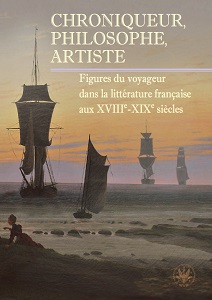
This volume focuses on the figure of the traveller emerging from the French literature of the 18th-19th centuries (real and imaginary travels). Eminent specialists from universities around the world (Réunion, Montpellier, Nancy, Lausanne, Szeged, etc.) analyse the changes taking place in the way the traveller is represented. Do travel accounts always focus on real trips? Does travel literature speak (only) about travels? What is the aim of imaginary travels? Does each literary period have its own model of travelling? The volume provides answers to all of those questions and much more.
More...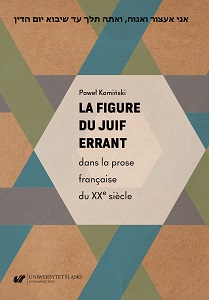
The present monograph constitutes a semiological and semiopragmatic analysis of the figure of the Wandering Jew in selected French prose works dating from the 20th century (five texts altogether). Its overriding subject-matter is to determine to what extent the conventional pre-designation is reflected in the analysed novels presenting the immortal vagrant, but also to verify if the axiom of the so-called “death of the myth” is indeed well-founded and if it is present in the contemporary French literature. In the publication, has also been indicated a net of correlations which occurs in the reading process between the analysed character and a reader. Therefore, the other essential goal of the study was to look into the narrative system so as to describe to what extent ‒ and if at all ‒ narrative procedures applied in the analysed prose works determine a potential anti-Semitic overtone and reception of the Wanderer.
More...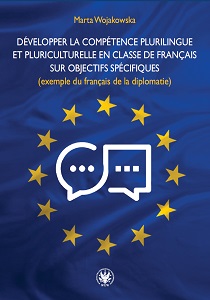
The book aims to show that multilingual and multicultural competence, connected with the intercultural approach, deserves a special place in language teaching for professional purposes, as it is a key issue of language education policy in most European countries.
More...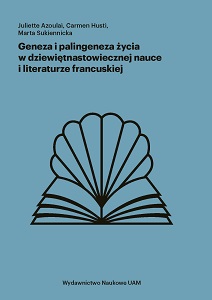
In the nineteenth century, scientists' discoveries resonated not only within the closed walls of laboratories and academies but also in literary and social space. They changed the way life and humans were presented in literature: since then, it has been possible to reflect on the origins of life, distant human ancestors, and species that will replace humans in the course of biological evolution. This book aims to help introduce the Polish reader to these unobvious links between literature and natural science in nineteenth-century France.
More...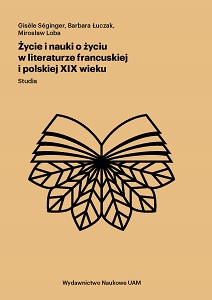
This book takes a historical look at the relationship between French and Polish literature and the natural sciences in the nineteenth century. The three studies present the shift in the scientific paradigm that occurred at the turn of the eighteenth and nineteenth centuries; they also show the impact this shift had on literary practice in Poland and France. The works prove that modern literature entered into a dialogue with natural sciences, which had been undergoing extremely intensive development since the mid-eighteenth century: botany, zoology, physiology, and later biology became an attractive source for the literary imagination and contributed to a new reading of the classical relations between nature and culture. For the authors whose works are discussed in the following chapters (including Jules Michelet, Gustave Flaubert, Honoré de Balzac and Dyzma Bończa-Tomaszewski), knowledge of nature makes it possible to reread the history of cultures, states and civilizations, to describe contemporary reality and diagnose its characteristic phenomena, and even to envision the future. It also allows us to see what is common to humans, animals and plants.
More...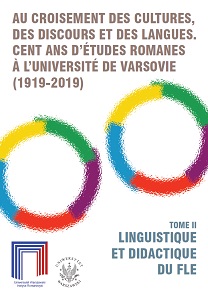
The book is part of celebrations of the 100th anniversary of the Institute of Romance Studies and its scientific and didactic activity in the field of French and Romance studies. The articles concern French literature, as well as the literature of Belgium, Switzerland and Quebec and cover the period from the 17th to the 21st century. The authors analyse major novels, short stories, essays, dramas as well as selected epistolography and reportage, they indicate the places where literature meets painting and photography meets cinema. The volume offers a wide selection of critical discourses such as: history, history of ideas, narratology, genology, intermediality, post-colonial studies, geocriticism, ecocriticism, which dominate francophone literary research.
More...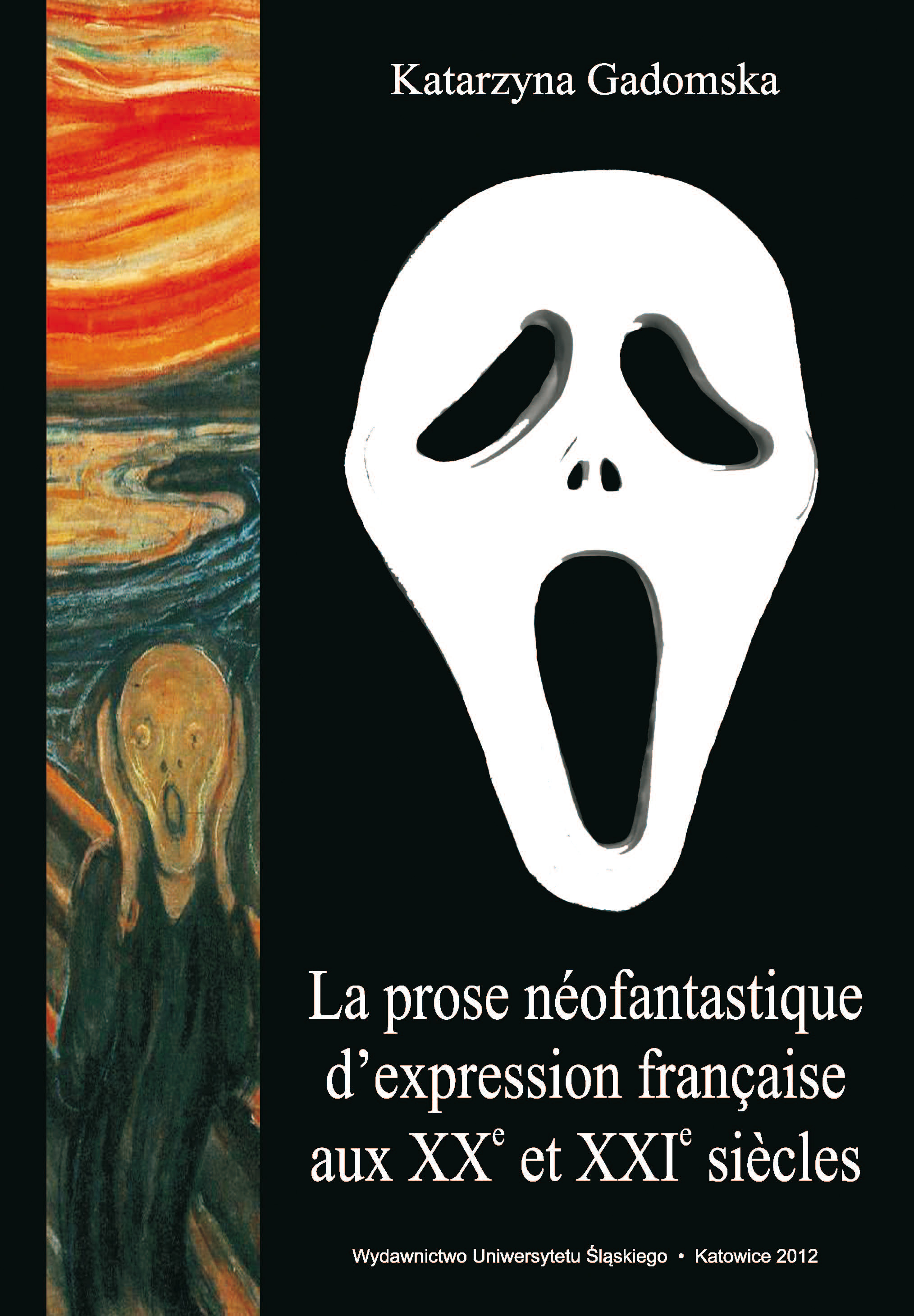
The work constitutes an attempt to describe the poetics of the 20th and 21st century neo‑fantastic prose of selected French‑speaking countries (France, Belgium, Quebec). The analyses of the material made use of such research methods as a semiotic description of the character (A. Greimas’ actantial model), Ph. Hamon’s semiological model and U. Eco and V. Jouve’s semiopragmatic method. The first chapter covers basic elements of the world presented in literary works: time, space, their chronotop (M. Bachtin) and personage, responsible for creating a mimetic illusion crucial to the formation of the fantastic effect. The next chapter was devoted to the manifestations of “a fantastic phenomenon”, taking on the shapes of the following anxiogenic figures: a ghost, vampire, psychopath (also in gore movie), double, woman, fear‑evoking objects. The next chapter concentrated on the presentation of special ethics and aesthetics of fantastic prose these days, describing above all the evil, ugliness, the negative and repulsive (all possible perversions and sexual deviations, pure evil, cruelty). The last chapter discusses the form of works within the scope of “new fantastic literature”: selected elements of a paratext according to G. Genette (an incipit, excipit, preface), forms and structures of narration, as well as traditional and new writing techniques typical of the genre of fantastic literature exclusively. A conclusion constitutes an attempt to answer the question on the scope within which contemporary fantastic literature modifies definitions of traditional fantastic literature and to what an extent it continues or diverges from canonic fantastic literature. The appendix includes versions of “urban legends” in extenso, as well as notes bringing the profiles of the French‑speaking writers closer.
More...